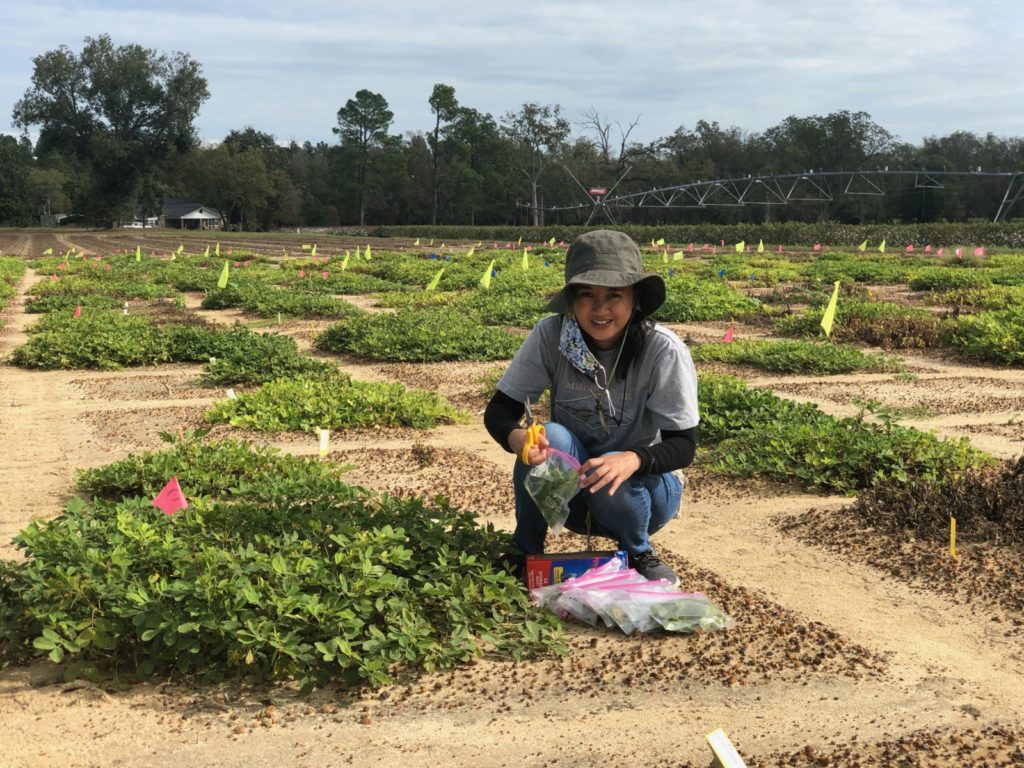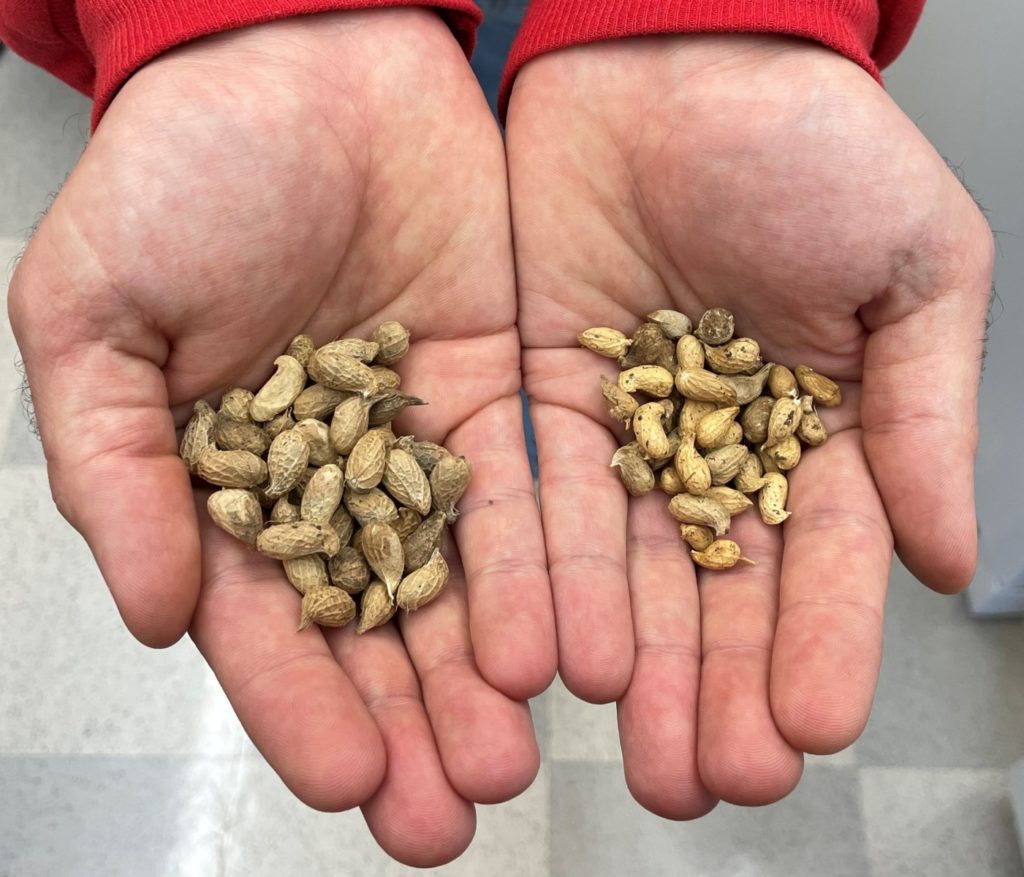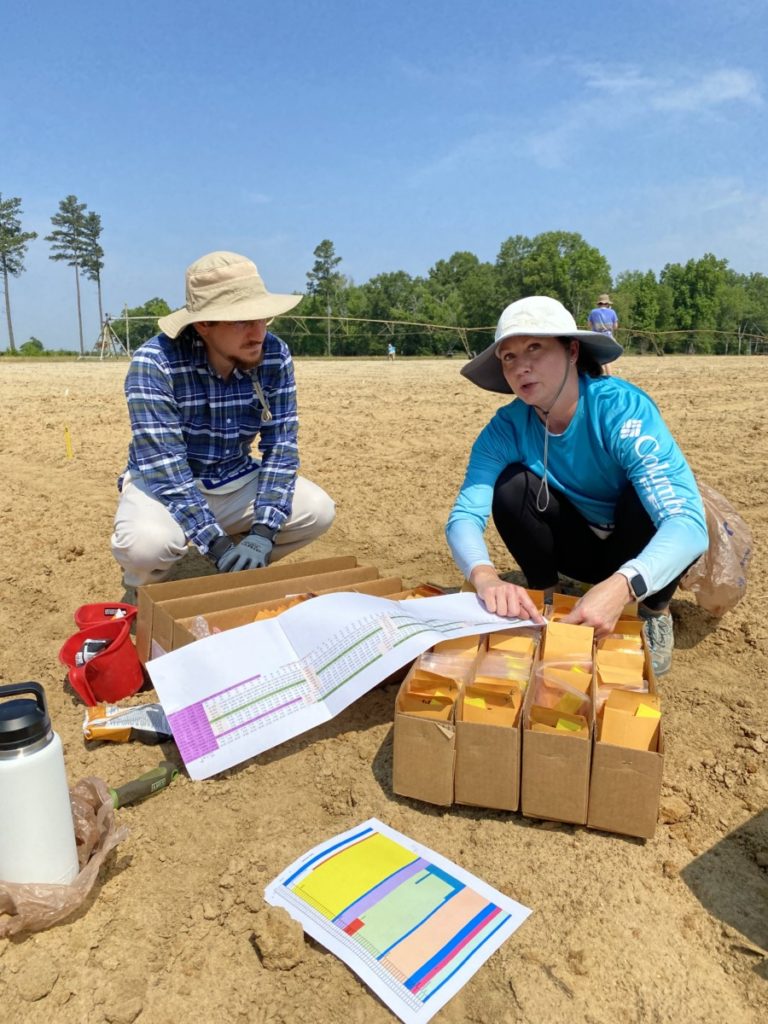

Our main mission at the WILD PEANUT LAB is the study of the genetics of peanut, and the application of that knowledge to improve sustainability, reduce farm inputs, increase food security, and improve the livelihoods of farmers worldwide. This research mission is combined with a commitment to graduate teaching that inspires students to make a difference.
Peanut is native to South America, but it has travelled around the world and is now a key food for people world-wide: from the families of subsistence farmers in the tropics and subtropics, to city dwellers far from where it is grown. In the USA it is a very important crop for domestic consumption and export. However, it is in Africa and Asia that is has its greatest social importance. In Asia almost as much peanut is grown as soybean, in Africa, it provides more calories and protein than all other grain legumes added together.
Our lab is committed to improving the peanut crop, by broadening its genetic base with the gene diversity of wild peanut species from South America. Our main focus is improving resistance to pests and pathogens. However, wild alleles can also improve other traits such as productivity, seed size and drought tolerance.
Our strategies are based on controlled hybridizations, guided by the integrated use of traditional breeding, advanced genetic analysis and DNA marker-assisted selections. A strong rationale for using wild species comes from the origin of the cultivated peanut species. It likely arose from single hybridization between two wild species that were cultivated together by early agriculturalists in Bolivia or Argentina. This hybridization was accompanied by chromosome doubling and gave peanut a “fixed hybrid vigor”. However, it created a very strong genetic bottleneck because the new species with doubled chromosomes was sexually isolated from its wild relatives.
Peanut breeding with wild species relies on controlled hybridization, chromosome doubling and recurrent rounds of selection and back-crossing with elite cultivars of peanut. These steps are labor intensive and take many years, but they introduce strong traits that are unavailable in peanuts of pure cultivated pedigree. Currently the work has introduced new strong sources of resistance to the fungal diseases, late leaf spot and rust, and root-knot nematode parasites into elite cultivated peanut.
The mission of the Wild Peanut Lab requires a range of expertise to implement, an international collaborative network spanning from specialized laboratories to breeders is essential for success. The doubled chromosome structure of peanut also brings special complexities to its genetics. Whilst for some time it was assumed that peanut’s genetics is diploid-like, similar to soybean, it is now known that behavior is partially tetraploid (like potato). The investigation of this unusual genetic behavior is an area of active Wild Peanut Lab research.
The location of the Wild Peanut Lab is strategic! The University of Georgia is a land grant institution with strong ties to farming and an unprecedented record in contributing to agricultural production. Being in Georgia, which produces about half of the peanuts grown in the USA gives the lab’s research mission local importance and abundant local knowledge sources to draw upon. Finally, the Lab is located less than two hours’ drive from the USDA National Plant Germplasm System, Griffin (https://npgsweb.ars-grin.gov/gringlobal/search.aspx), which hosts a seed bank with many accessions of 68 wild Arachis species, a genetic treasure ready for exploring!


Research at the Wild Peanut Lab is funded by:






